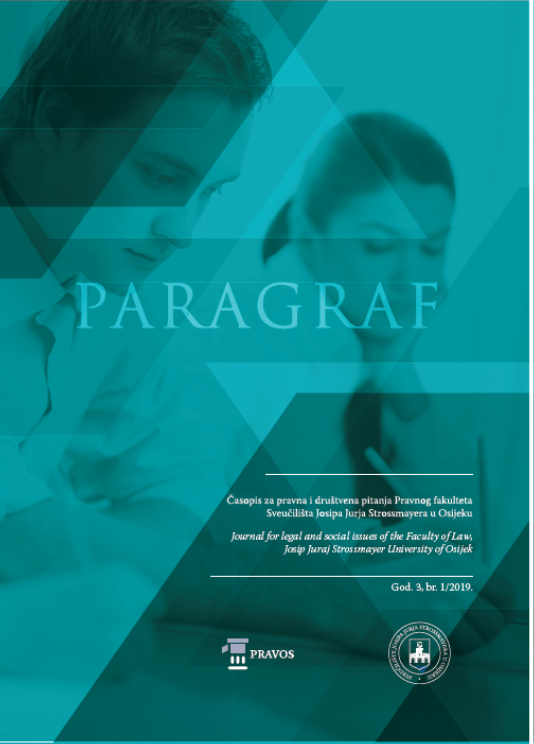WILL – (IN)DEPENDENT DISPOSAL
Keywords:
will, legal inheritance, forced heirs, intestate heirs, testatorAbstract
There are two foundations of inheritance in the Republic of Croatia: the law and a will.
Inheritance is implemented legally if the testator did not determine how his/her estate
should be divided. In this paper, we study whether the will of the testator is respected in
his/her testament given a forced share, the percentage of legal heirs invoking a forced share,
and, finally, if there is a way to respect the will of the testator. We also compare the Republic
of Croatia with other countries, especially with the European Union countries, and study
whether Regulation 650/2012 provides for a forced share. In conclusion, we deal with the
facts which might explain the main reasons why people in our country do not use a last will
that expresses their wishes as to how their property is to be distributed at death as often as it
is used in other countries, what its advantages are, and which disadvantages of a will prevent
Croatian citizens from making a will. We also try to find answers to the aforementioned
questions in case law, compare how much theory and practice really coincide and to what
extent our citizens are aware of the right to a forced share when the testator leaves the will
behind as inheritance proceedings referring to the right to a forced share are initiated only
at the request of the person concerned, never ex officio. Due to the fact that a will is an
exception in relation to law that is considered a rule, a forced share is considered to be an
exception to a will; hence we will draw attention to the possibility of circumventing this
exception within the exception and exemplify the ways in which the testator may ensure that
his/her heir inherits the whole estate, without fear of sharing it with forced heirs.




